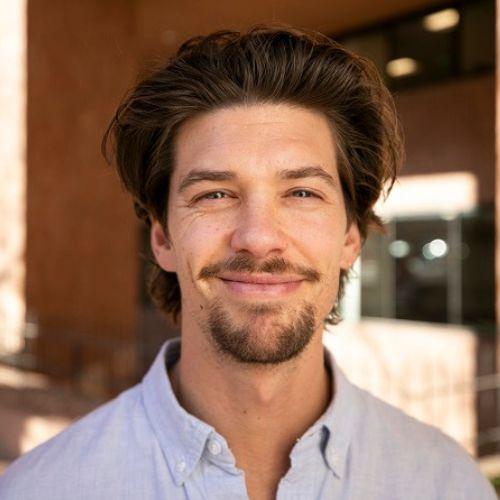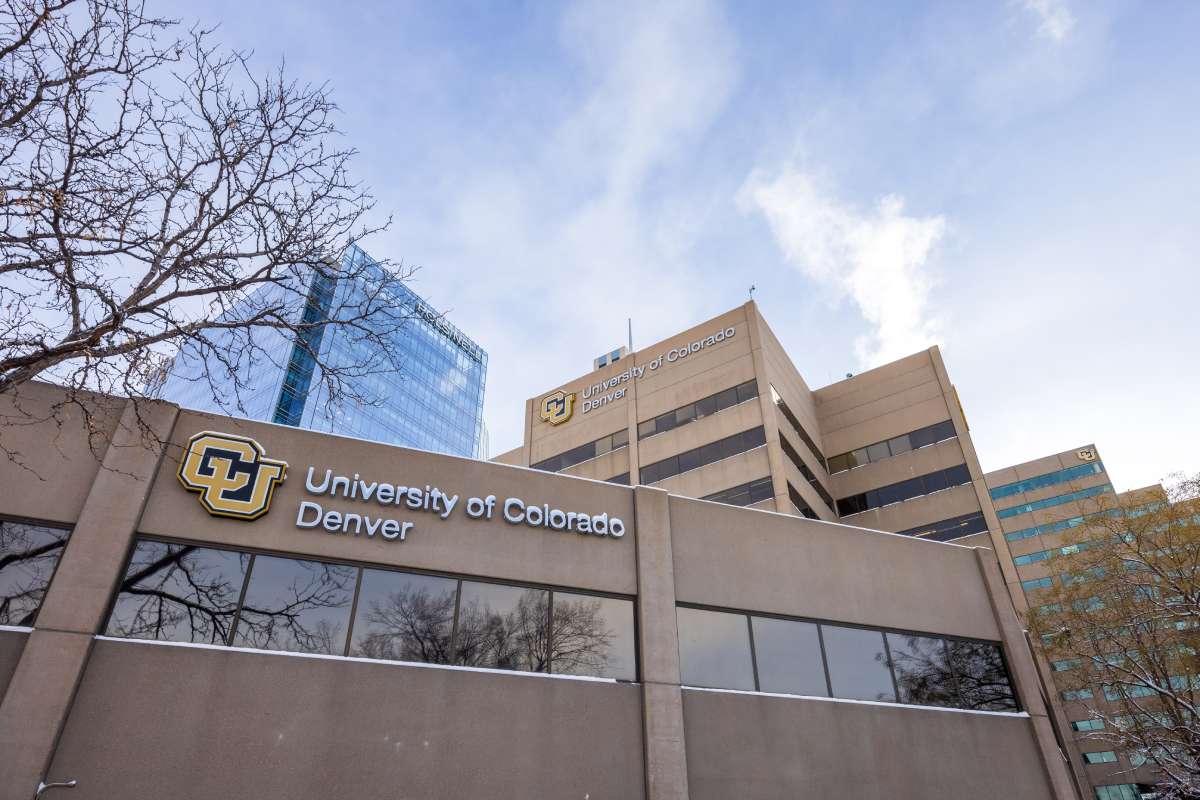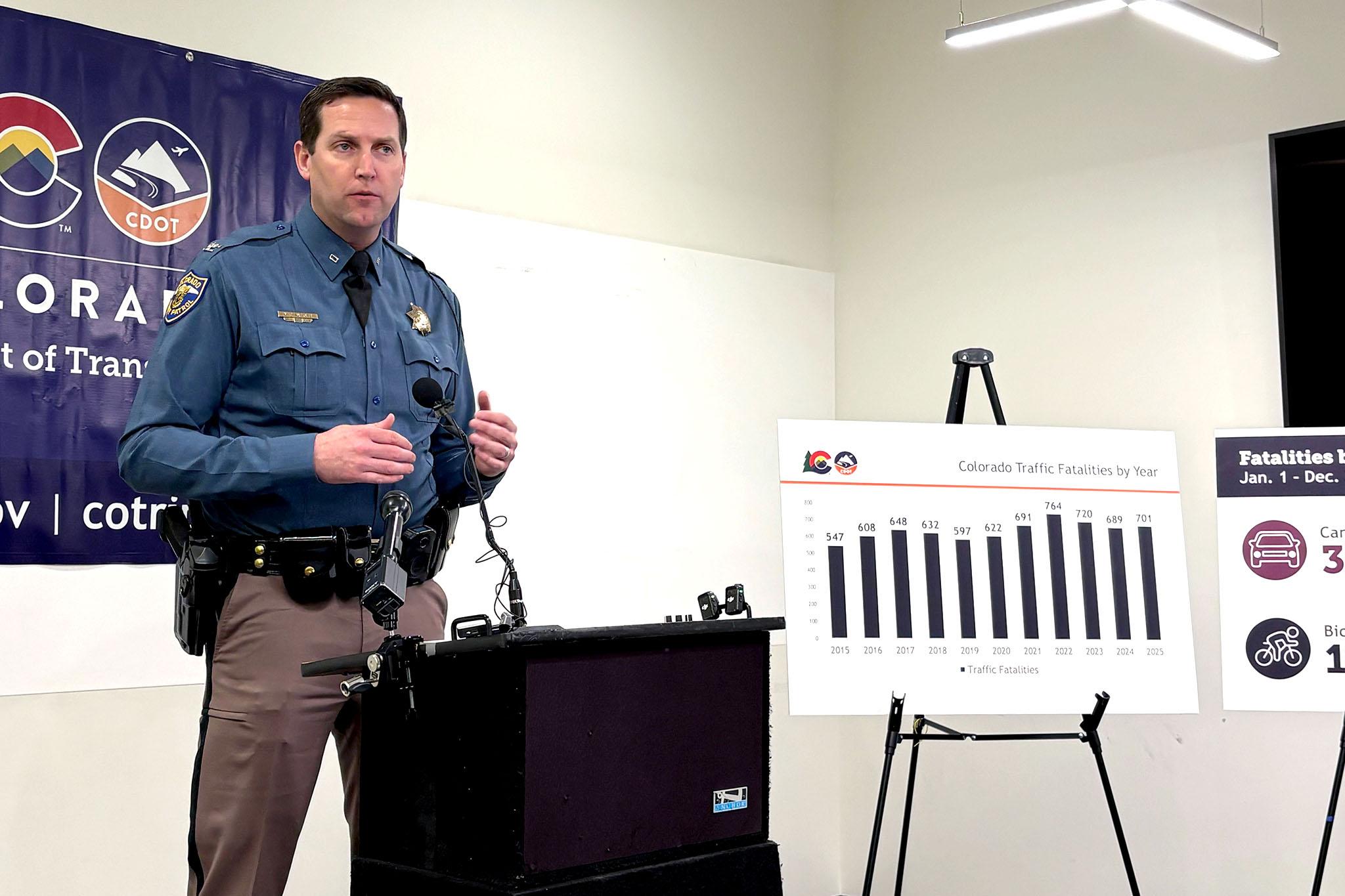
On Nov. 17, phones started lighting up at a first-floor office in north Denver.
Hundreds of people wanted to know whether they had won the lottery, and if not, if they had other options.
The callers were not looking for the winning Powerball combination. They wanted to know whether they would be able to afford health insurance next year.
The days leading up to Nov. 17 were excruciating for Blanca, who’s 52 and a single mother, and whose last name we’re not using because of concerns she could be targeted by federal law enforcement due to her immigration status.
She’s among 12,000 undocumented Coloradans who received subsidies from the state to get free health insurance through the OmniSalud program in 2025. But she had to wait to see if she would be selected again.
“I’ll be keeping an eye on my phone, but I know that when I open it, it will be very good news,” Blanca said in an interview in Spanish. “I have that confidence and faith that God knows who needs it.”
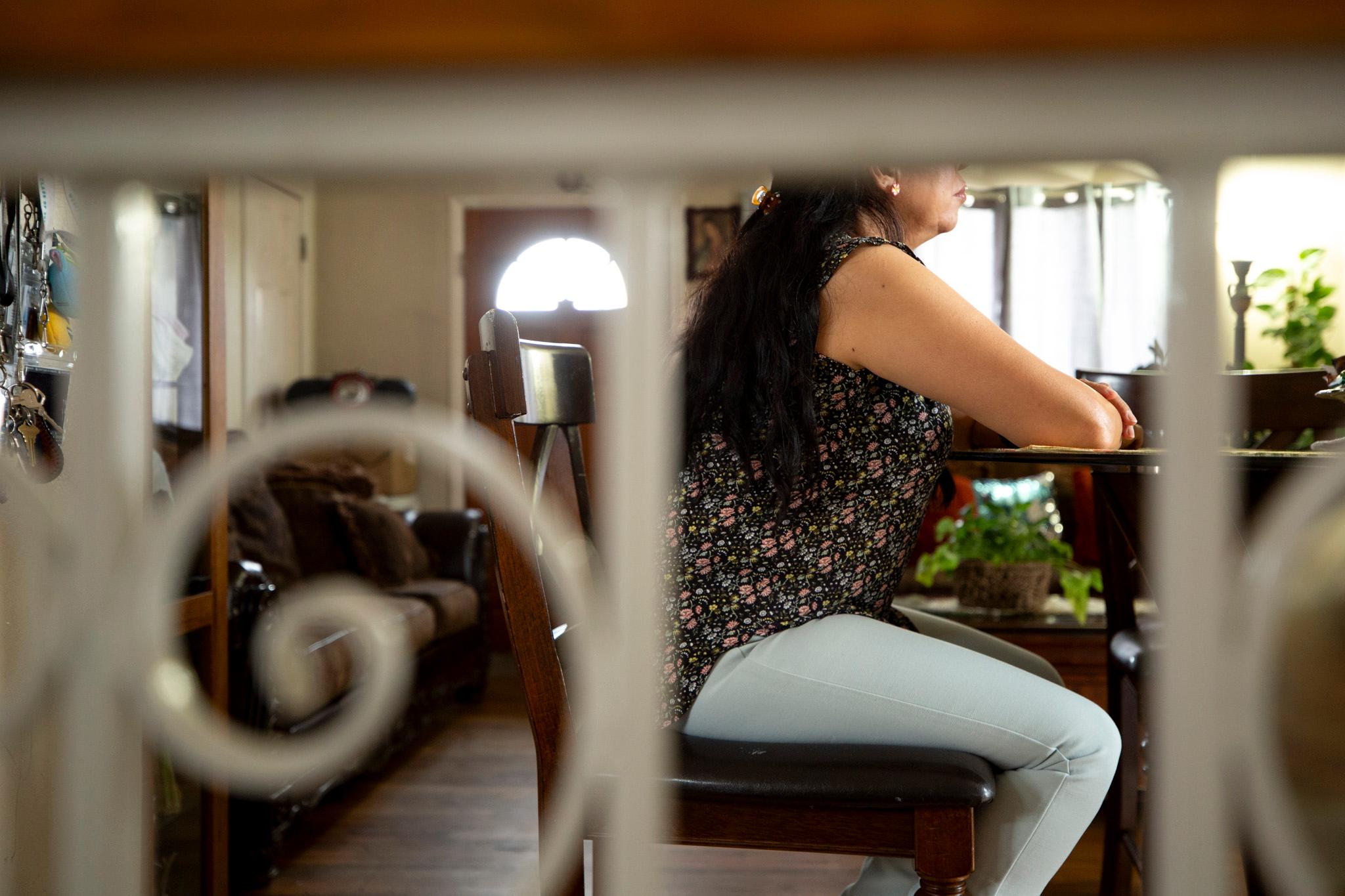
OmniSalud covers people on DACA and without documentation whose immigration status makes them ineligible for federal programs like Medicaid. To qualify for OmniSalud’s zero-cost premium, individuals must make less than 150% of the Federal Poverty Level, which is about $23,000 per person.
The decision not to extend enhanced tax credits on health care exchanges as part of this summer’s federal tax and spending bill, H.R. 1, also called the Big Beautiful Bill, means that OmniSalud will be able to offer fully subsidized insurance to a little more than half as many people in 2026. That’s according to Vuela for Health, an organization that does healthcare and education outreach for the local Latino community and has connected a portion of eligible residents to OmniSalud.
More than 5,000 undocumented immigrants who had previously received subsidies will have to pay full price for health insurance starting in January – a cost that Blanca said she simply can’t afford.
“I don’t have much work right now because of everything that’s going on with – well, not just me. Everyone, right? In this country,” she said.
This month, the OmniSalud Lottery used a random selection process to determine who would get coverage in 2026. If pulling winners and losers out of a hat seems cruel, it’s because there may not have been a better option.
“I don’t know if this is the most fair, but I don’t know what else can be possible,” said Diana Pineda, the founder and executive director of Vuela. “It’s like, how can we decide who needs it and who doesn’t?”
Pineda said her clients are scared because they have no control over what happens.
“It’s only waiting to see what is the result,” she said.
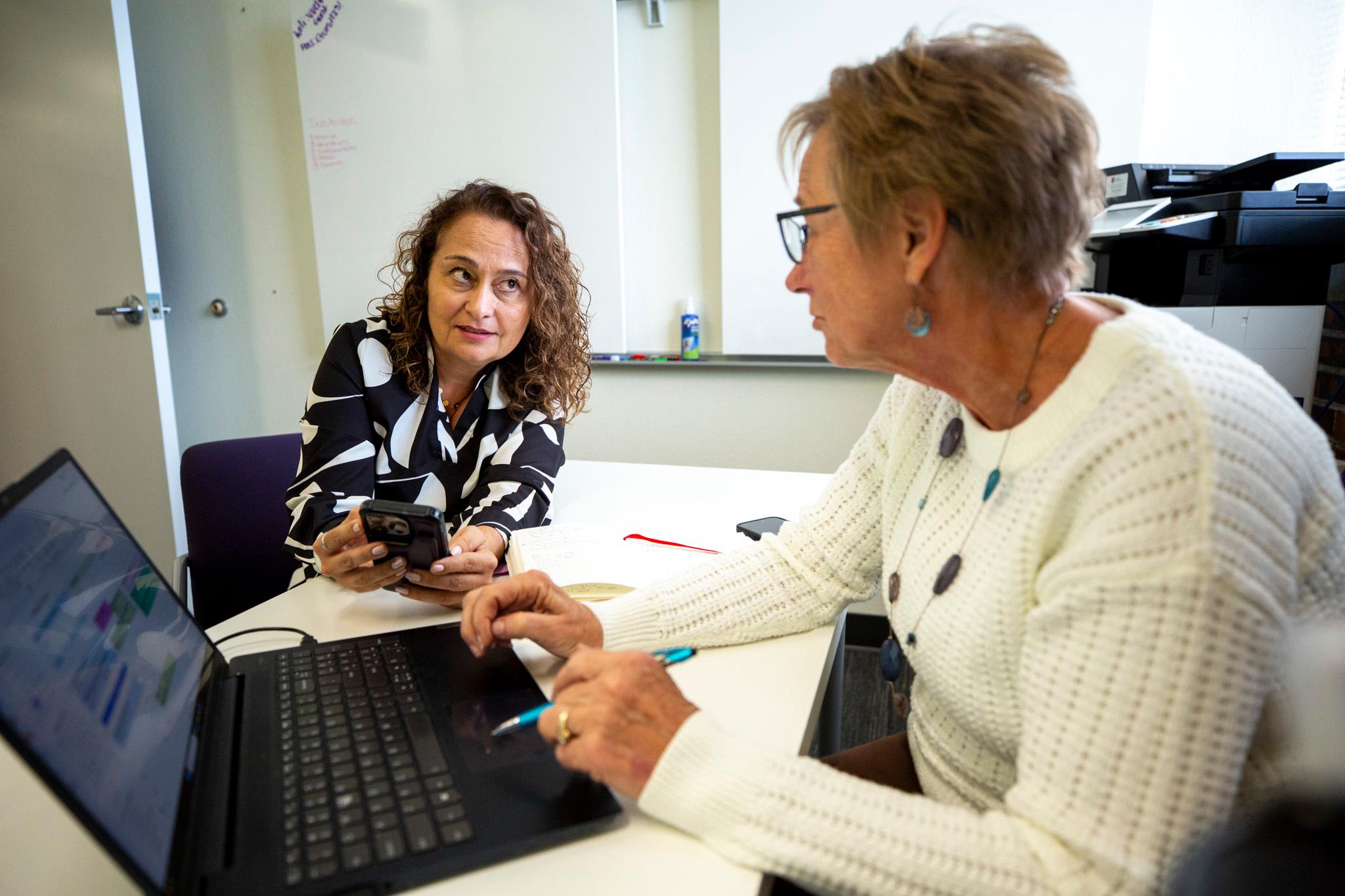
The origins of OmniSalud
Colorado created OmniSalud a few years ago with the hope that it would help people get preventative care and treatment that they had been foregoing, and bring down costs for everyone by reducing uncompensated care at hospitals in the state and creating a bigger pool of insured people.
OmniSalud is funded by a state entity called the Health Insurance Affordability Enterprise.
"We want to be completely clear that no federal funding goes toward OmniSalud. Funding for that program comes from the fee that health insurance companies pay to the Health Insurance Affordability Enterprise,” said Division of Insurance spokesperson Genna Morton.
OmniSalud has grown incrementally each year. In 2023, OmniSalud enrolled 10,000 people with zero-cost premiums. In 2024, it expanded to 11,000. All of the available spots were claimed in just a couple of days after they became available, showing the large demand. This year, it expanded to 12,000 slots.
But by refusing to extend tax subsidies – both in the Big Beautiful Bill and again during the government shutdown – Congress will halt that growth. It’s one of the cascading effects on Colorado’s healthcare ecosystem, and fulfills a Republican promise to reduce the money spent to provide health insurance to immigrants.
In a press release last week, for example, Republican House Speaker Mike Johnson said President Trump is delivering lower taxes and has a renewed commitment to putting American citizens first. Meanwhile, the release stated, Democrats are making life unaffordable while pouring billions into health benefits for “illegal aliens.”
And just days after the Big Beautiful Bill passed, the US Department of Health and Human Services announced it would further restrict immigrants from accessing federal benefits. HHS Secretary Robert F Kennedy Jr. said that, “For too long, the government has diverted hardworking Americans’ tax dollars to incentivise illegal immigration.”
The value of health insurance
Less than a week before the lottery announcement, Blanca filed into a mostly empty conference room at the Vuela office and sat down next to Carolina, 63, another OmniSalud participant whose last name we’re also not using because of her undocumented status. In Spanish, she talked about what it would be like if her health insurance subsidy did not get renewed.
“You worry, and maybe you get worse than you are, (not) knowing where you’re going to be paying from,” she said. “You can’t work the same when you’re sick. And if you can’t work anymore, then how are you going to be able to pay or keep paying for something?”
Blanca and Carolina each came to Colorado from Mexico more than two decades ago, Blanca from San Luis Potosí and Carolina from Aguascalientes. They had kids and have worked: Blanca at a Wendy’s for a while, then selling produce, and now at a bakery. Carolina cleaned houses.
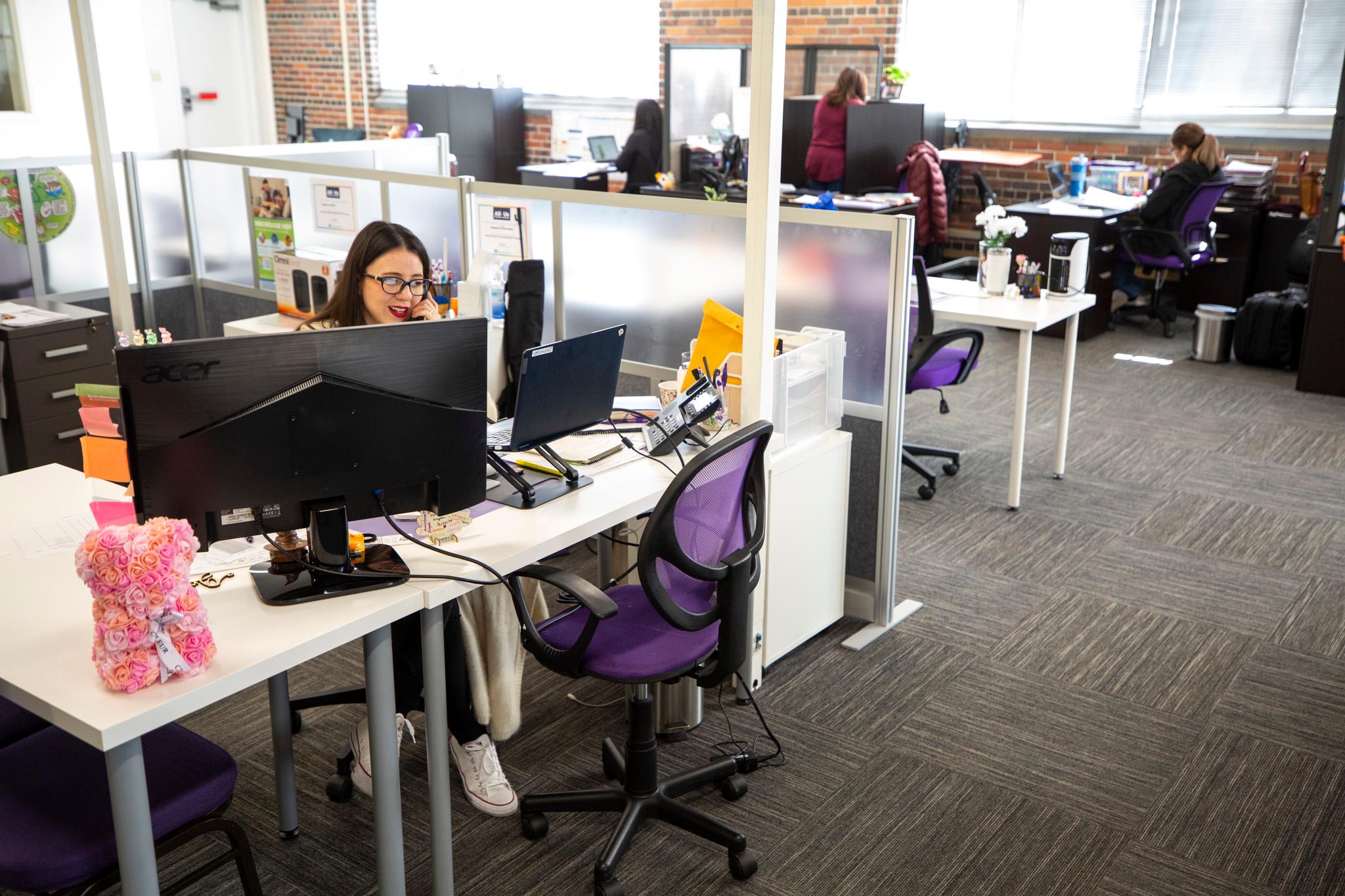
For most of their lives in the U.S., health insurance was out of reach. Blanca and Carolina got care through community clinics, but those were only for the basics.
Carolina said OmniSalud’s coverage may have saved her life.
“They sent me to get a mammogram, and I didn’t even know where to go because they charged for it. And then I started using the insurance, and that’s when they discovered I had cancer,” she said.
Carolina said without OmniSalud, it would have been impossible to pay for a mammogram and biopsy, not to mention the mastectomy and radiation treatment she got, and the medication she’s still taking.
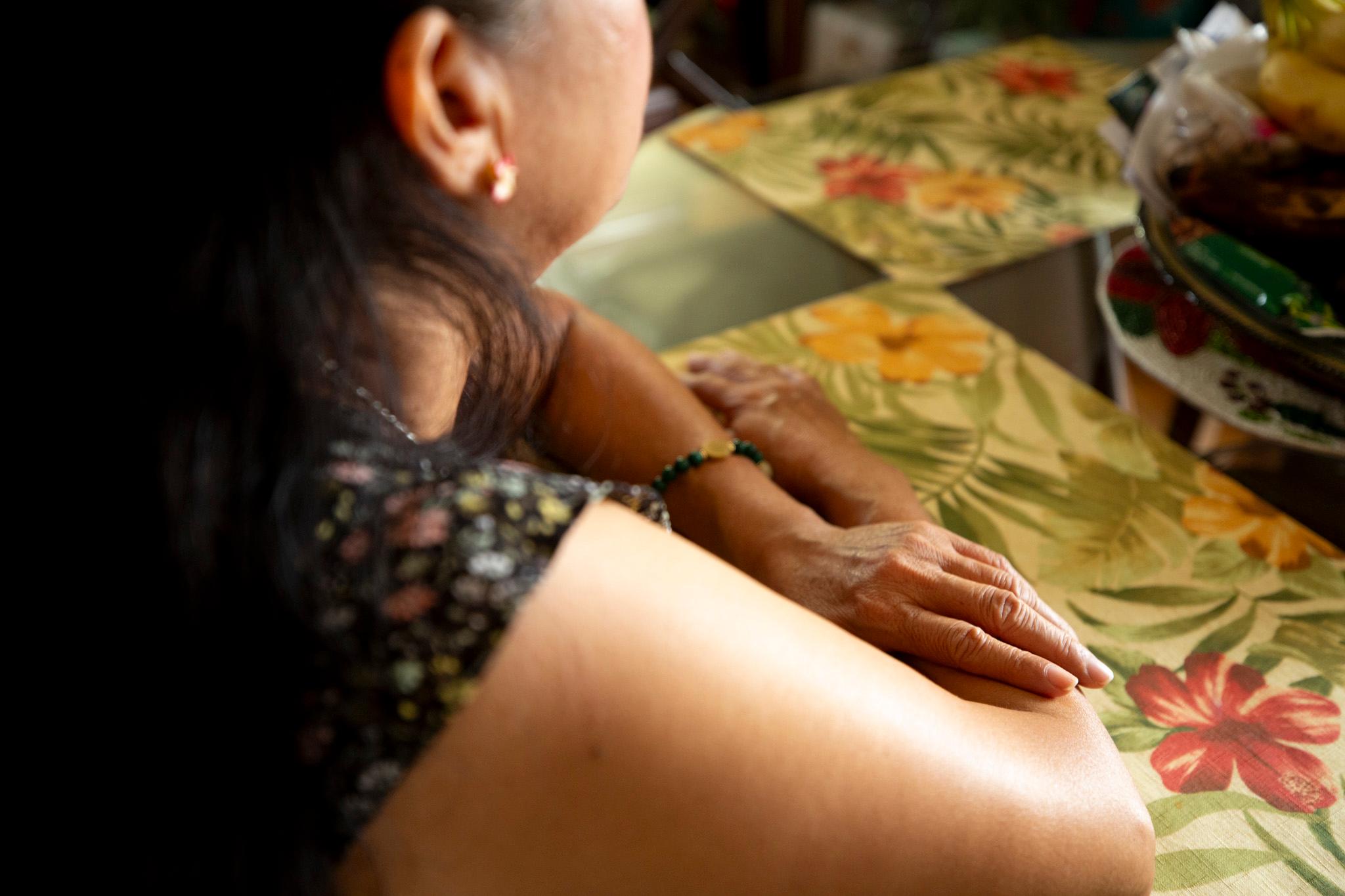
Meanwhile, Blanca said she dealt with massive headaches and high blood pressure after falling out of a chair a few years ago. A community clinic treated her for brain inflammation, but her symptoms wouldn’t go away.
After getting coverage through OmniSalud, Blanca underwent a series of X-rays and scans. The doctors told her she was still suffering from a head injury.
“I feel very secure with this program because I’m a single mother. And so that has helped me a lot because I honestly wouldn’t have been able to pay,” she said.
Blanca’s and Carolina’s stories are signs that the OmniSalud program works, according to Pineda. It helps keep people on their feet, holding down jobs, and paying taxes. Undocumented immigrants in Colorado contribute hundreds of millions of dollars a year in state and local taxes.
Winners and losers
Vuela’s staff was nervous last Monday, when the lottery results were supposed to come in.
“We’re a bit overwhelmed with calls, trying to help everyone we can. We hope people understand,” said Veronica, whose last name we’re not using because of her immigration status. Vuela removed from its website the names and photos of all its staff members over concerns they could be targeted by individuals or federal law enforcement.
Veronica is a promotora, a liaison between health services and the Latino community.
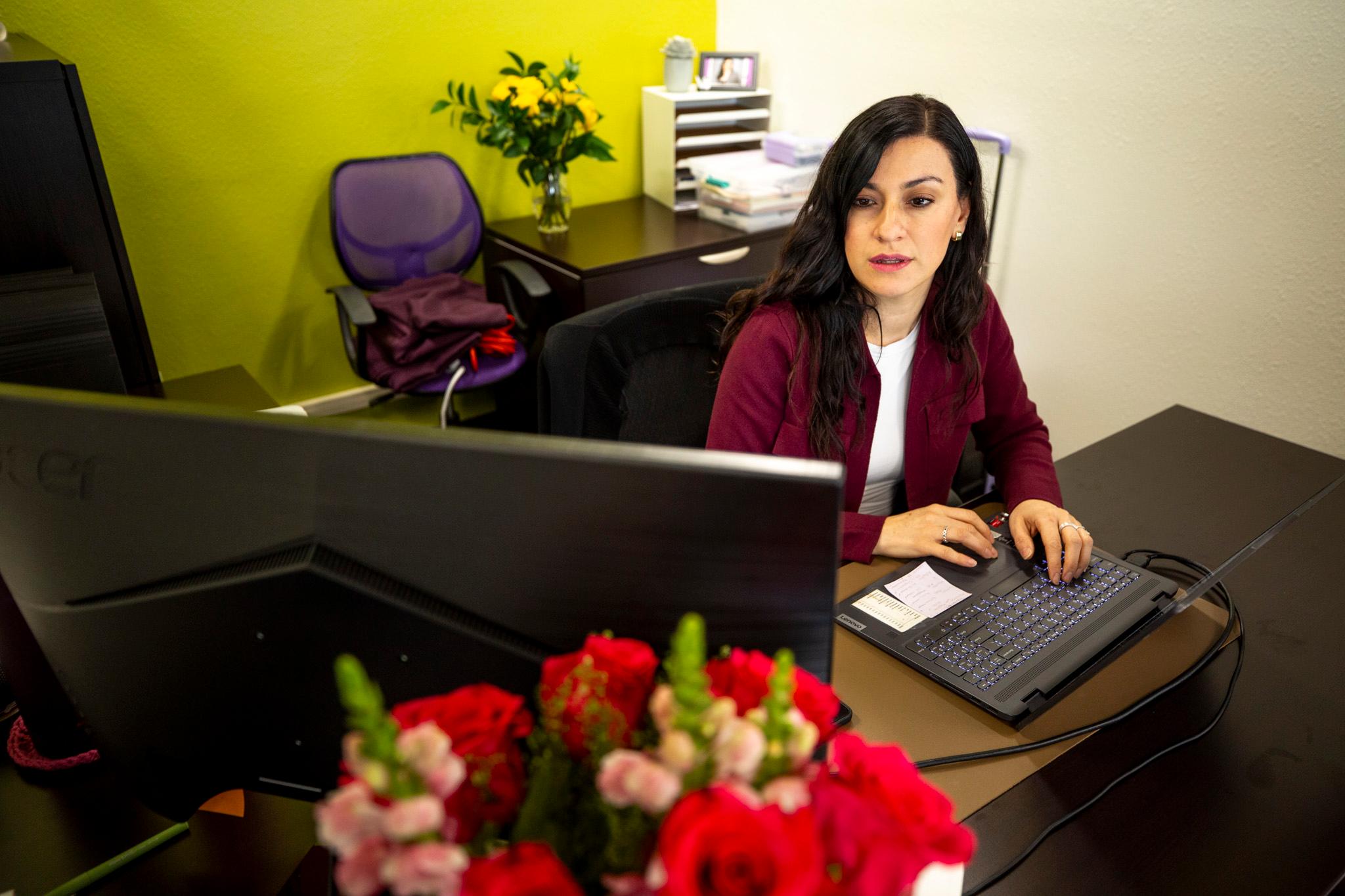
Last week, she fielded calls from people who were selected for continued subsidies and needed help choosing their health insurance plans. She also got calls from people who lost the lottery and wondered what they could do next.
“I've been doing this for three years now. You get to know people because there are people who are fortunate enough to have had insurance for three years,” she said. “Sometimes we think that people who sign up don't really need it, but there are truly many people in need who don't have the resources and depend on treatment to keep living.”
Vuela for Health connected nearly 900 undocumented immigrants to the OmniSalud program in 2025. By the end of lottery day, they still had not received the final list of recipients from the state, which extended the feeling of dread for Veronica.
“It's very hard because people come and talk to you. You know what's happening, and not being able to do anything is very difficult,” she said.
The next day in the office, Veronica called Blanca, who had already received a message directly from the state.
“I got a message saying I didn't qualify, and yes, I got sad,” she said.
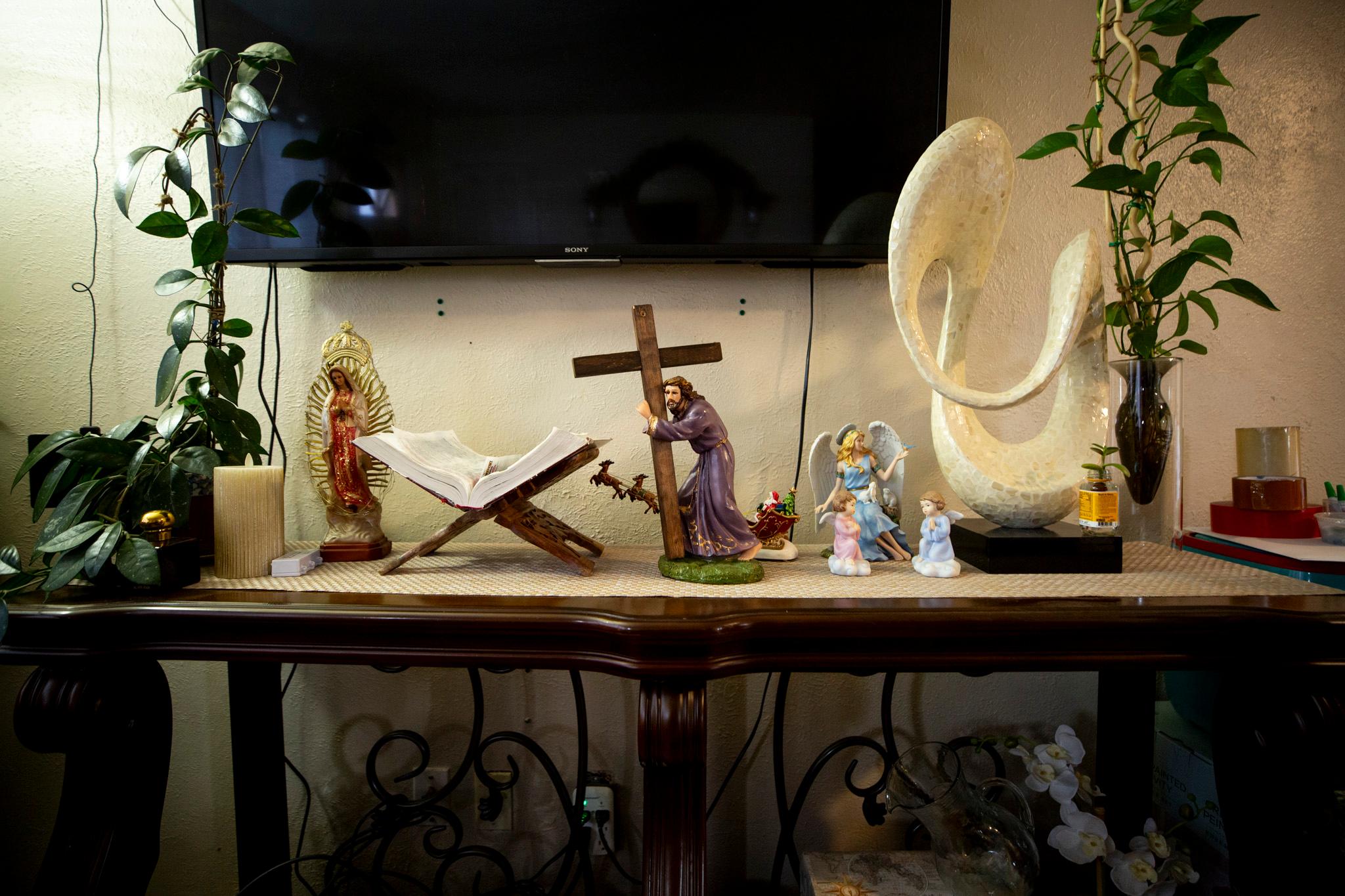
But her sister, who Blanca said was recently diagnosed with cancer, did get selected.
“So I think there was a change of fate, and it said, ‘I'll take it from you, but your sister needs it more,’ and I was very happy about that,” Blanca said.
Now she’ll be able to afford treatment next year, Blanca said.
She is optimistic about her own chances for 2026. She feels like this year’s rejection is all part of God’s plan, and she is happy for all the people who were able to extend their subsidized coverage past January 1.
That includes Carolina, who drew a winning ticket.
The final tally
Pineda got the state’s list on November 19, two days after the lottery was announced. Of all the immigrants who Vuela helped connect with OmniSalud coverage last year, 782 were winners and 91 will lose their subsidized coverage.
It’s a somewhat miraculous outcome, statistically speaking. Each person vying for free OmniSalud coverage next year had a roughly 55% chance of being selected. In Vuela’s pool, the success rate was nearly 90%.
Pineda said that most of the people who come to Vuela looking for healthcare coverage have been in the U.S. for more than five years. They often work in jobs that come with health risks, like construction, farming, and washing windows.
For them, OmniSalud was a lifeline. But the lottery means thousands of people will spend the next year trying not to get sick, and wondering what will happen when they do.
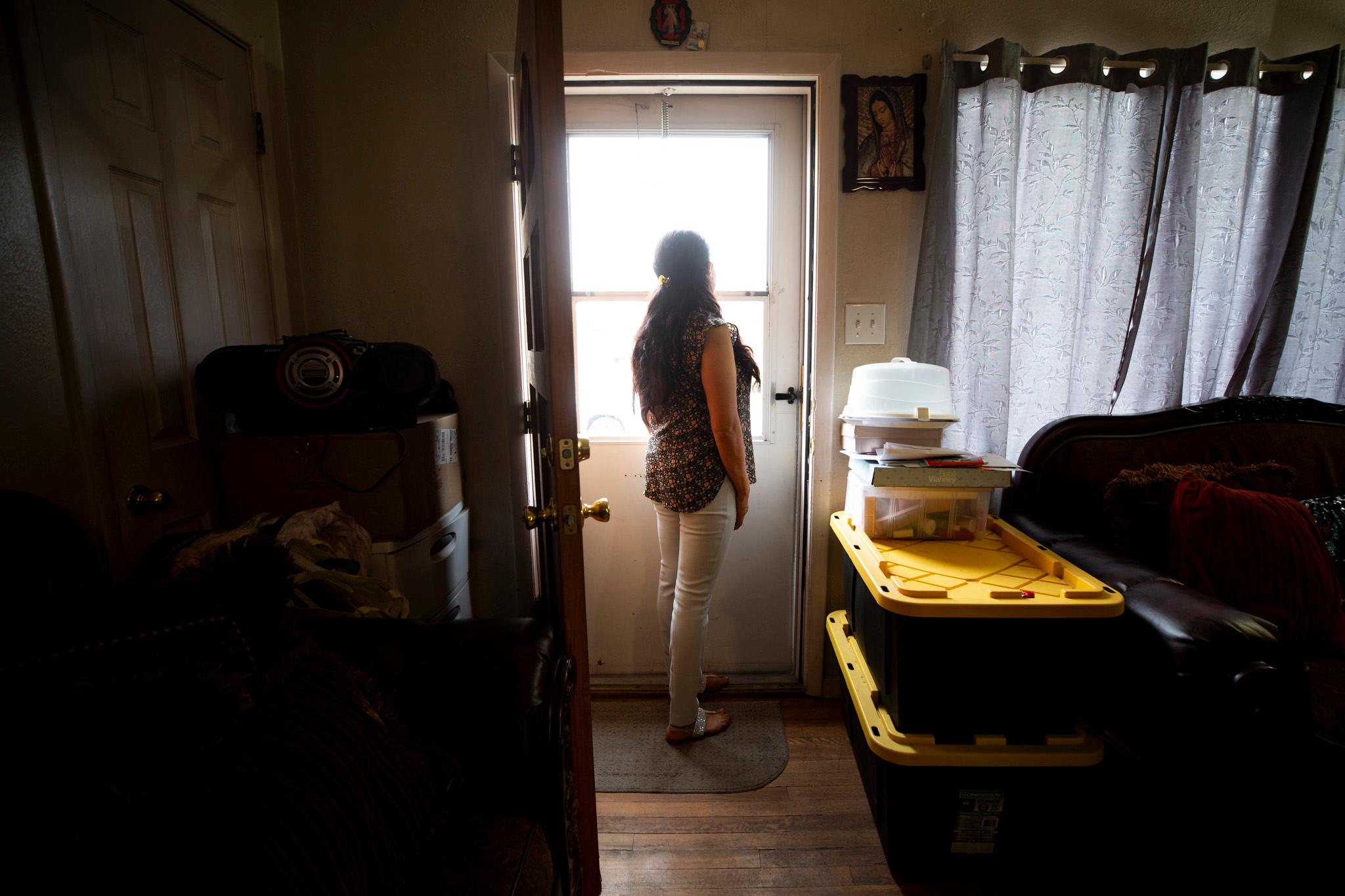
Correction: A line has been removed from this story to clarify that no funding from the federal government gets passed through to directly help fund OmniSalud.
This story has also been updated with comments from the Division of Insurance, which came in after the original publication of this story, and further explain the funding mechanisms for OmniSalud.
| This story is part of a collection tracking the impacts of President Donald Trump’s second administration on the lives of everyday Coloradans. Since taking office, Trump has overhauled nearly every aspect of the federal government; journalists from CPR News, KRCC and Denverite are staying on top of what that means for you. Read more here. |
